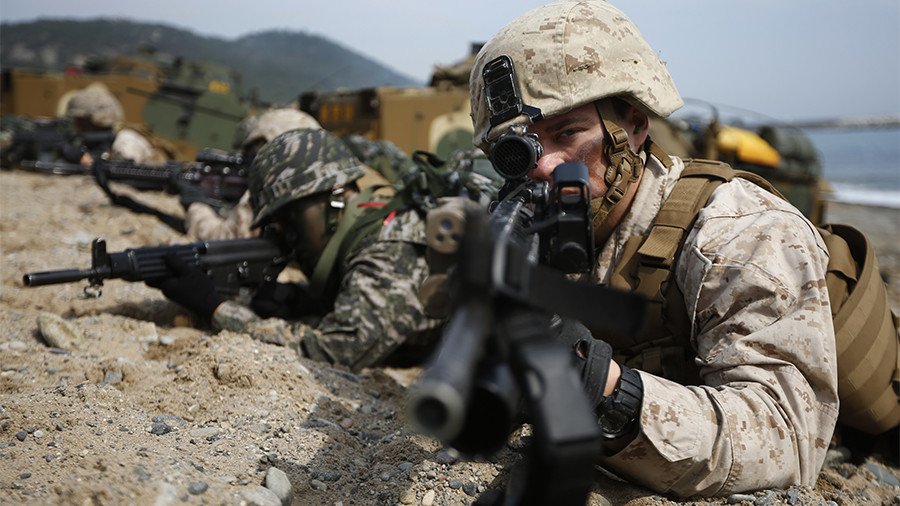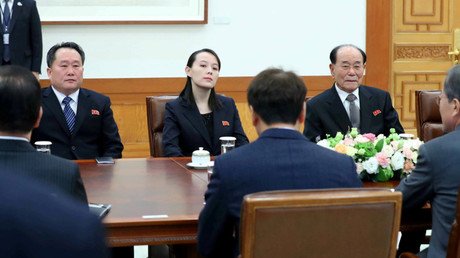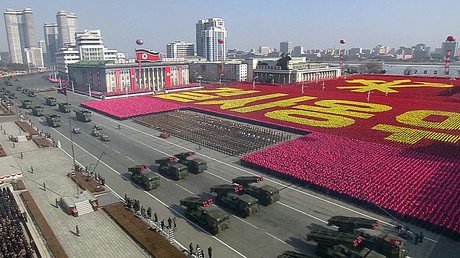Seoul won’t rush to renew joint military drills with US as new intra-Korean summit solidifies

South Korean President Moon Jae-in reportedly rejected a call from Japan to quickly resume joint US-Korean military drills. Moon has been invited to visit Pyongyang for what may become the first top-level summit in over a decade.
At a bilateral summit on Friday, Moon called on the Japanese Prime Minister Shinzo Abe to wait before resuming the drills, Yonhap reported, citing a government official. The drills have been paused for the duration of the Winter Olympics, as part of Seoul’s attempt to mend relations with Pyongyang. North Korea considers the drills a major threat to its national security, saying they may be used to conceal a build-up for an invasion.
According to the report, Abe argued that the time to delay exercises scheduled for spring was not right and that Pyongyang had to change its behavior before receiving concessions.
“I understand what Prime Minister Abe said is not to delay South Korea-U.S. military drills until there is progress in the denuclearization of North Korea. But the issue is about our sovereignty and intervention in our domestic affairs,” Moon told the Japanese leader, according to the unnamed official. “The president said it was not appropriate for the prime minister to directly mention the issue.”
North Korea’s successful development last year of a ballistic missile, which is apparently capable of reaching the US mainland, as well as carrying a small thermonuclear device, triggered a major security crisis on the Korean Peninsula. As US President Donald Trump threatened to use military force to destroy Pyongyang’s nuclear capabilities, a new left-wing government in Seoul took several symbolic steps to deflate the tension, including agreeing to have a joint athletic delegation with North Korea at the Olympics.
This week, Moon received an invitation from his northern counterpart, Kim Jong-un to visit Pyongyang for a top-level summit. If accepted, it would be the first diplomatic event of its kind since 2007, when the government of President Roh Moo-hyun in Seoul attempted to mend relations as part of the Sunshine Policy.
Roh’s successor, Lee Myung-bak, came from the other side of the political spectrum and took a hardline stance on intra-Korean relations, as did President Park Geun-hye, who came from the same conservative camp. After Park was impeached, Moon was elected partially on the promise of reviving the Sunshine Policy.















